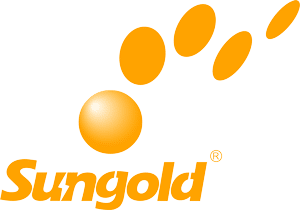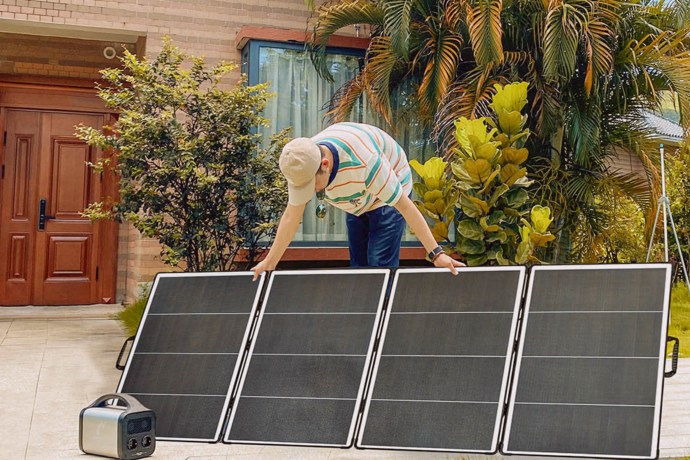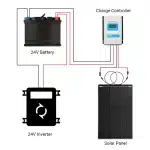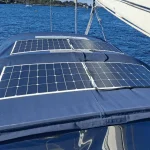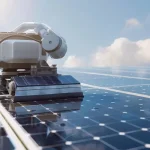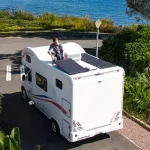Portable solar panels are an excellent way to generate clean energy, but whether or not you need an inverter depends largely on the types of devices you plan to power. Here’s a detailed breakdown to help you decide.
Do You Need an Inverter?
Is it possible to use solar panels without an inverter? Whether or not you need an inverter depends on the types of devices you plan to use. To understand this better, it’s important to know the difference between the two types of electrical power—AC and DC—and how they relate to your solar system.
Solar panels generate direct current (DC) electricity, which flows in one direction. This is ideal for charging batteries or running small electronics that are designed for DC power. However, most household appliances, such as refrigerators, air conditioners, and televisions, operate on alternating current (AC). AC power changes direction periodically, and this is the standard type of electricity found in homes.
Since solar panels produce DC, and most appliances require AC, an inverter becomes essential to make the power generated by your solar panels compatible with the appliances you want to use.
AC vs. DC Appliances:
Inverter Required: If you plan to power standard household appliances, such as refrigerators, TVs, or laptops, you will need an inverter. These appliances typically require AC power. An inverter’s role is to convert the DC power generated by your solar panels into AC, making it compatible with most home electronics.
No Inverter Needed: On the other hand, if your solar system is designed to power DC devices, like certain LED lights, small electronics, or 12V appliances, you do not need an inverter. These devices can run directly on DC power. However, depending on the voltage requirements of your devices, you may still need a DC-to-DC converter to adjust the voltage levels.
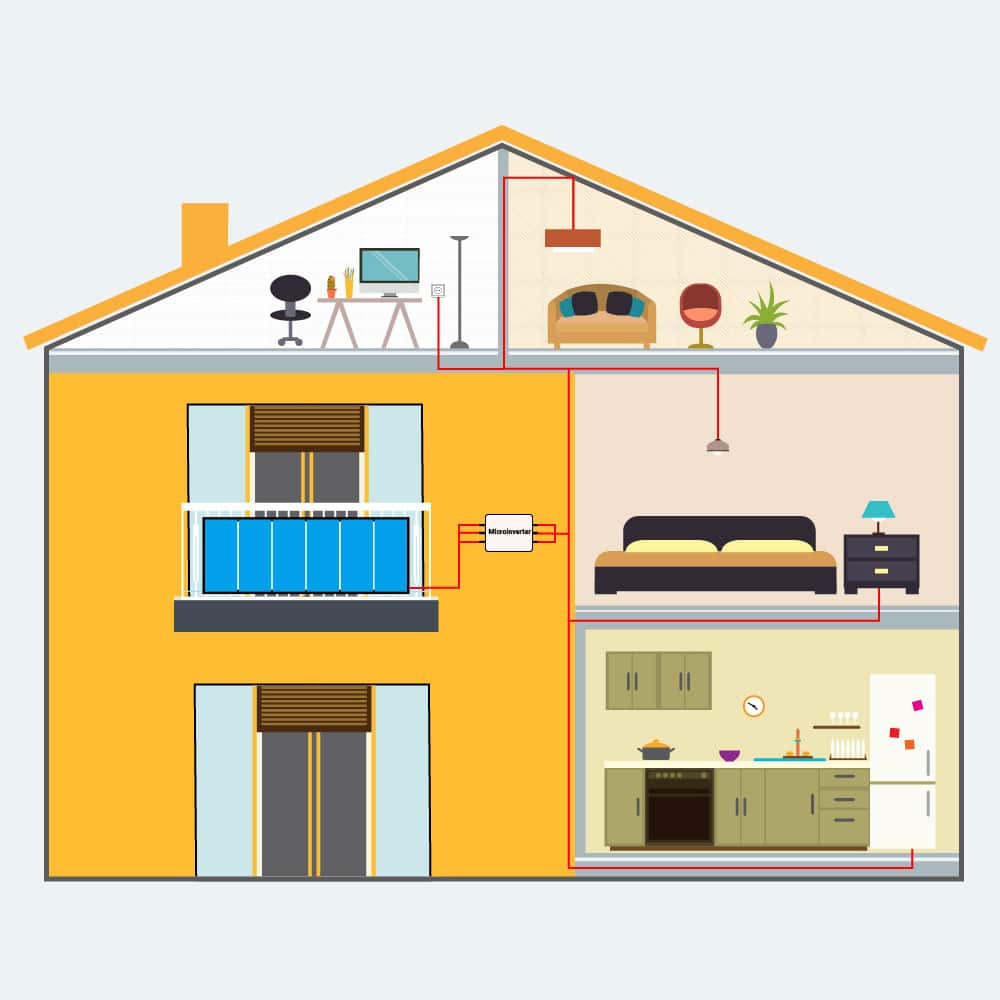
Home Appliances and Their Power Supply
Household appliances can operate on either alternating current (AC) or direct current (DC), depending on their design and function. Here are the power types for some common household appliances:
- Refrigerator: Typically uses AC, as the compressor requires high-voltage AC to operate. However, some modern refrigerators may include DC components, such as electronic control panels and LED lights.
- Washing Machine: Usually powered by AC, as the motor driving the drum needs high-voltage AC. Some modern washing machines may also have DC components, such as electronic controllers and displays.
- Air Conditioner: Traditional central air conditioners use AC, but inverter air conditioners increasingly use DC to improve energy efficiency. The inverter converts AC to DC to control the compressor’s speed.
- Television: Traditional CRT televisions use AC, while modern LED/LCD and OLED televisions typically have built-in power supplies that convert AC to DC to power the display panel and backlighting.
- Vacuum Cleaner: Traditional vacuum cleaners use AC, but cordless or handheld models are powered by DC batteries.
What happens if I connect a solar panel directly to a battery?
Attempting to use an AC device without an inverter is not recommended. Without it, your appliance may not work correctly or could be damaged due to the incompatibility between DC and AC power. Additionally, powering sensitive electronics with the wrong type of power can lead to malfunction or permanent damage.
Another issue is that when relying on portable solar panels in remote locations, you may be limited in the types of appliances you can use. This could be inconvenient, especially if you’re trying to power essential home equipment or appliances that require AC power.
- Overcharging: The voltage and current from the solar panel fluctuate, and without a charge controller, overcharging may occur, damaging the battery’s lifespan or causing overheating, leakage, or even explosion.
- Battery Damage: If the solar panel’s voltage exceeds the battery’s tolerance, it can damage the battery.
- Inefficient Charging: The battery charging process will be very slow and inefficient without a charge controller.
- Lack of Protection: The charge controller provides overcharge and low-voltage protection. Without it, the battery may over-discharge or overcharge, reducing its lifespan.
- Possible Solar Panel Damage: If the battery is fully charged, the solar panel may still output excess current, leading to overheating or damage.
Therefore, a charge controller is essential to ensure safe and efficient battery charging.

Choosing the Right Inverter
If you decide an inverter is necessary, selecting the right type and size is crucial for efficiently operating your solar power system.
Inverter Types:
There are two main types of inverters to consider:
- Modified Sine Wave Inverters: These are more affordable and can power basic devices like lights, fans, and some small appliances. However, they produce a more “rough” waveform that could cause issues with sensitive electronics, such as computers, medical devices, or audio equipment.
- Pure Sine Wave Inverters: These are the recommended options for sensitive electronics. They produce a cleaner, more stable waveform that closely matches the power from your home’s electrical grid. Pure sine wave inverters are more efficient (90% to 95%) and ensure that electronics run smoothly without risk of damage.
Sizing the Inverter:
The size of the inverter you need depends on the total wattage of the appliances you plan to power. As a rule of thumb, your inverter’s capacity should be about 20% larger than your largest expected load. This extra capacity accommodates any power surges that can occur when appliances start up.
For example, if you are using a 100-watt solar panel and plan to power a 100-watt appliance, a 200-watt inverter would be a good choice. This would allow for potential surges and ensure your inverter isn’t operating at full capacity all the time, improving its longevity.
Conclusion
In summary, portable solar panels can work without an inverter if you’re powering only DC appliances. However, if you want to run household appliances that require AC power, an inverter is necessary to convert the DC electricity to usable AC power. Choosing the right type of inverter—modified sine wave for basic appliances or pure sine wave for sensitive electronics—and selecting the appropriate size will help ensure your solar power system operates effectively and efficiently.

